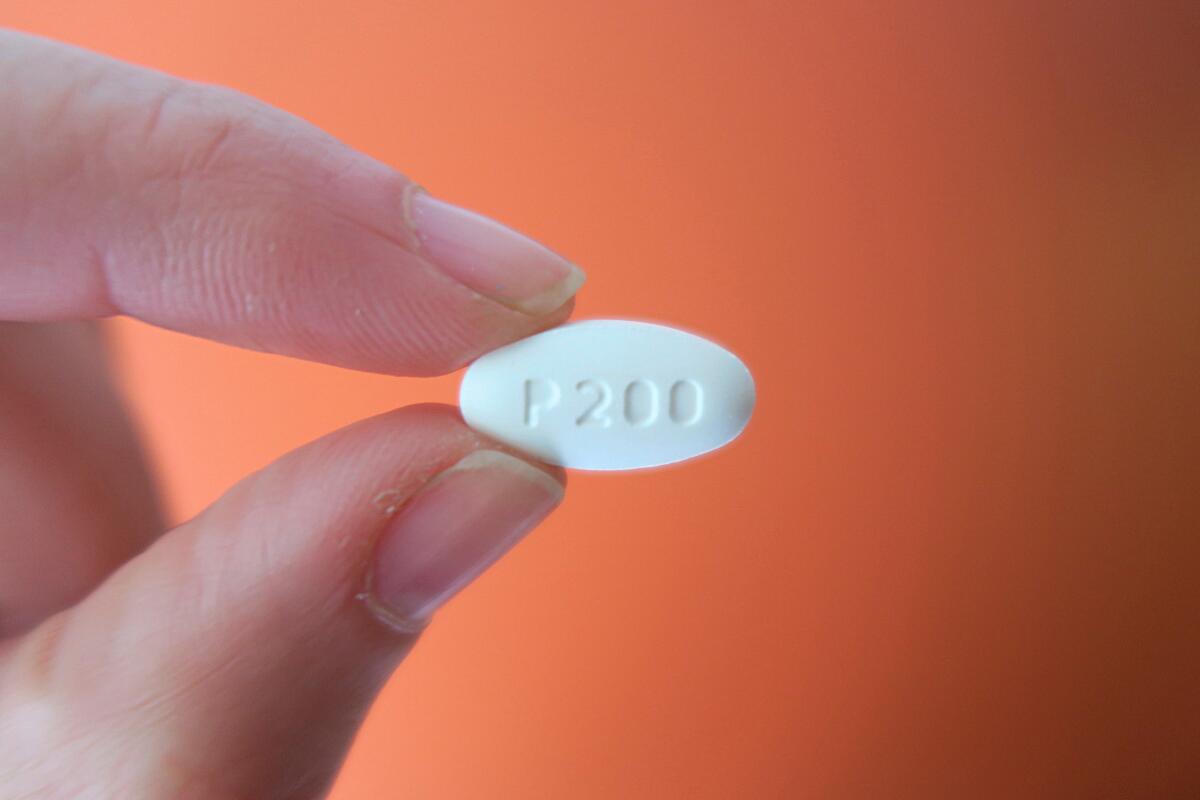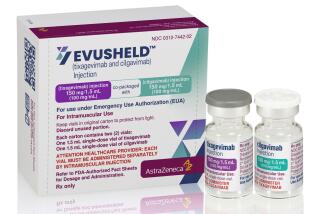FDA approves tuberculosis drug that works on hard-to-treat cases

- Share via
U.S. regulators have approved a new tuberculosis medication that shortens and improves treatment for the hardest-to-treat cases — a worsening problem in many poor countries.
Decades of incomplete or ineffective treatment has resulted in tuberculosis strains that have become resistant to existing medicines. The TB Alliance was formed to come up with better treatments, and it has been working on the new drug since 2002.
For the tens of thousands of people around the world who become infected with an extensively drug-resistant form of TB each year, pretomanid “could be a major breakthrough,” said Matthew Kavanagh, a health policy expert at Georgetown.
“It shifts XDR-TB from most likely a death sentence to likely survivable with effective treatment,” he said.
The Food and Drug Administration approved pretomanid for use with two other drugs for TB, a bacterial infection that attacks the lungs. The three drugs, which have little known resistance, attack TB in different ways.
In a key clinical trial that enrolled 109 patients in South Africa, the three-pill combo cured about 90% of patients with very drug-resistant TB, usually within six months. More than 10% of patients experienced side effects, including nausea, vomiting, anemia and a type of nerve damage called peripheral neuropathy.
Many TB patients are also infected with HIV. In the trial, the treatment worked as well for them as it did for other study participants.
The drug regimen also appears to stop patients spreading the deadly bacterial infection after a few days’ treatment.
Until now, the best option cured about two-thirds of patients, took 18 to 30 months, and required up to eight kinds of shots and pills. Many patients die or don’t finish treatment, according to Mel Spigelman, chief executive of the TB Alliance.
“Amazingly, it’s the first time that a treatment for XDR-TB infections has been recognized for actually working — no other treatment has demonstrated any consistent effectiveness,” Jamie Bay Nishi, director of the Global Health Technologies Coalition, said in a statement.
Worldwide, tuberculosis kills about 1.6 million people annually. It spreads through droplets when someone sick with TB sneezes or coughs. TB attacks the lungs and sometimes other organs.
More than 123 countries have reported cases of the most drug-resistant strains of TB, according to the World Health Organization. Cases are rare in the U.S., but when they come up, the cost of treating a single patient can be as high as $513,000, according to the Centers for Disease Control and Prevention.
The new drug combo — which also includes the antibiotics Zyvox and Sirturo — could help over 75,000 patients per year, mostly in India, China, Indonesia, South Africa and Nigeria, Spigelman said.
The TB Alliance said pretomanid should be available in the United States by the end of the year. The group is also seeking approval from European regulators and said it would work with the WHO to speed adoption of the treatment in countries that need it most.
Pretomanid is the first tuberculosis medication to be developed by a nonprofit organization. Its approval represents an important milestone in showing that there are ways to bring new drugs to patients without relying on the pharmaceutical industry, experts said.
“For diseases like XDR-TB, where the market in rich countries is small, new models are especially needed,” Kavanagh said.
Having a nonprofit backer could also help ensure that pretomanid is affordable, “which many of the recent new drugs for hard-to-treat diseases are not,” he added.
The Associated Press contributed to this report.






